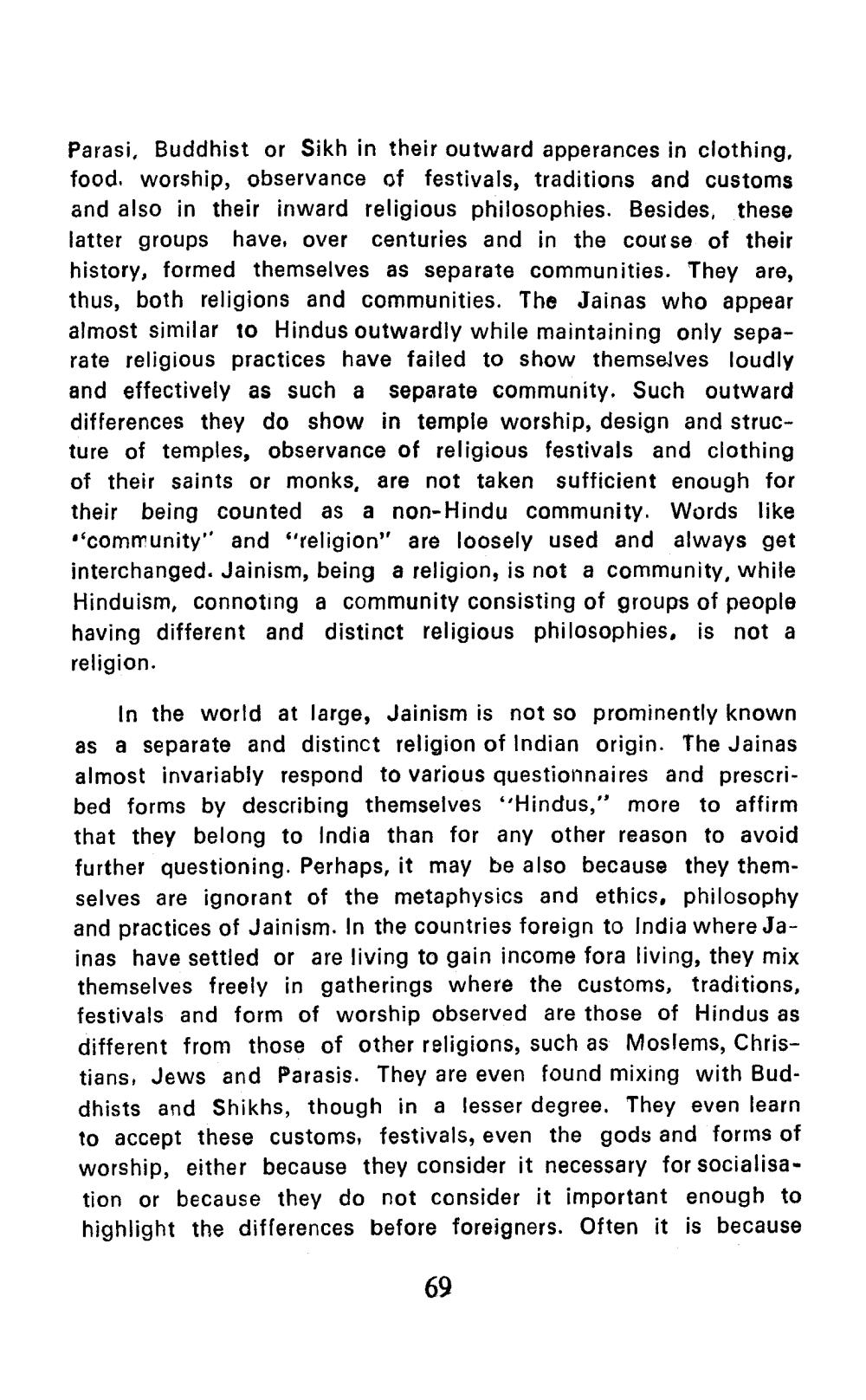________________
Parasi, Buddhist or Sikh in their outward apperances in clothing, food. worship, observance of festivals, traditions and customs and also in their inward religious philosophies. Besides, these latter groups have, over centuries and in the course of their history, formed themselves as separate communities. They are, thus, both religions and communities. The Jainas who appear almost similar to Hindus outwardly while maintaining only separate religious practices have failed to show themselves loudly and effectively as such a separate community. Such outward differences they do show in temple worship, design and structure of temples, observance of religious festivals and clothing of their saints or monks, are not taken sufficient enough for their being counted as a non-Hindu community. Words like "'community" and "religion" are loosely used and always get interchanged. Jainism, being a religion, is not a community, while Hinduism, connoting a community consisting of groups of people having different and distinct religious philosophies, is not a religion.
In the world at large, Jainism is not so prominently known as a separate and distinct religion of Indian origin. The Jainas almost invariably respond to various questionnaires and prescribed forms by describing themselves "Hindus," more to affirm that they belong to India than for any other reason to avoid further questioning. Perhaps, it may be also because they themselves are ignorant of the metaphysics and ethics, philosophy and practices of Jainism. In the countries foreign to India where Jainas have settled or are living to gain income fora living, they mix themselves freely in gatherings where the customs, traditions, festivals and form of worship observed are those of Hindus as different from those of other religions, such as Moslems, Christians, Jews and Parasis. They are even found mixing with Buddhists and Shikhs, though in a lesser degree. They even learn to accept these customs, festivals, even the gods and forms of worship, either because they consider it necessary for socialisation or because they do not consider it important enough to highlight the differences before foreigners. Often it is because
69




